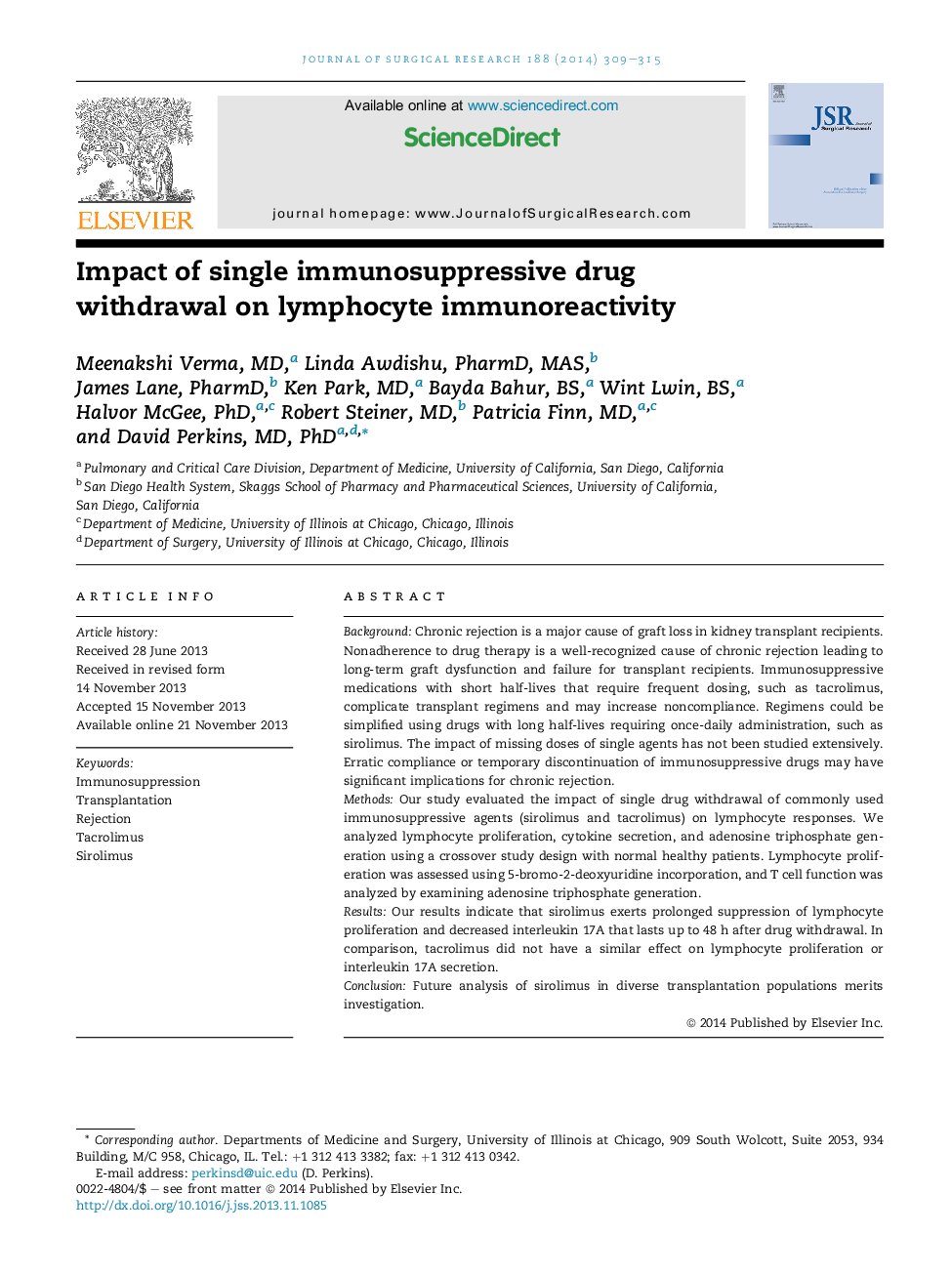| Article ID | Journal | Published Year | Pages | File Type |
|---|---|---|---|---|
| 4300253 | Journal of Surgical Research | 2014 | 7 Pages |
BackgroundChronic rejection is a major cause of graft loss in kidney transplant recipients. Nonadherence to drug therapy is a well-recognized cause of chronic rejection leading to long-term graft dysfunction and failure for transplant recipients. Immunosuppressive medications with short half-lives that require frequent dosing, such as tacrolimus, complicate transplant regimens and may increase noncompliance. Regimens could be simplified using drugs with long half-lives requiring once-daily administration, such as sirolimus. The impact of missing doses of single agents has not been studied extensively. Erratic compliance or temporary discontinuation of immunosuppressive drugs may have significant implications for chronic rejection.MethodsOur study evaluated the impact of single drug withdrawal of commonly used immunosuppressive agents (sirolimus and tacrolimus) on lymphocyte responses. We analyzed lymphocyte proliferation, cytokine secretion, and adenosine triphosphate generation using a crossover study design with normal healthy patients. Lymphocyte proliferation was assessed using 5-bromo-2-deoxyuridine incorporation, and T cell function was analyzed by examining adenosine triphosphate generation.ResultsOur results indicate that sirolimus exerts prolonged suppression of lymphocyte proliferation and decreased interleukin 17A that lasts up to 48 h after drug withdrawal. In comparison, tacrolimus did not have a similar effect on lymphocyte proliferation or interleukin 17A secretion.ConclusionFuture analysis of sirolimus in diverse transplantation populations merits investigation.
